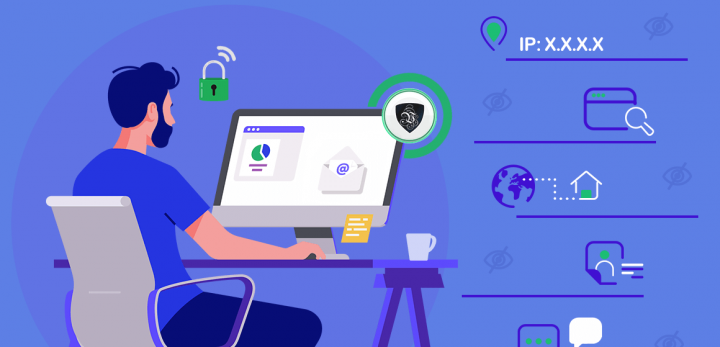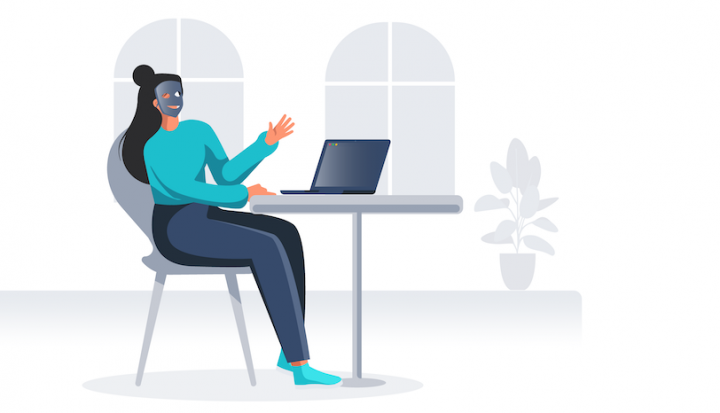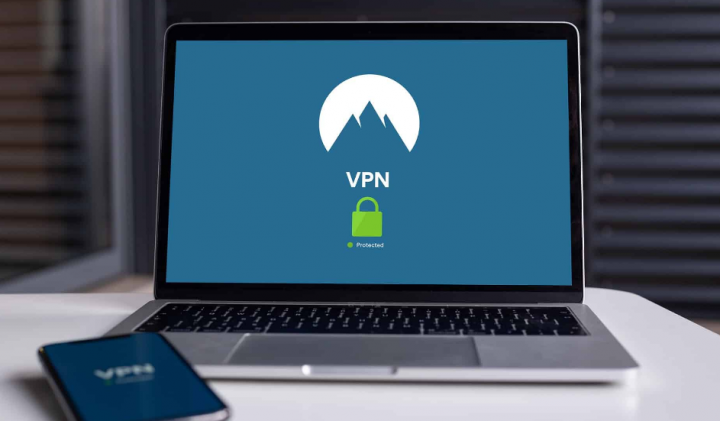
What does a VPN do or what does a VPN hide? What do you know about it? A VPN can hide your activity or what you do online. However, it includes everything you do in your browser. A VPN can helps you to share your info securely and privately.
Today, in this guide we are covering the types of data a VPN protects, and how efficiently it accomplishes this. Also, you’ll learn about the best providers on the market to render you completely anonymous.
What Does A VPN Hides & Do You Think VPN Protect Your Identity Online
By default, your online activity is unencrypted. This is not an issue for some users. For instance, if you live in Europe, GDPR laws can protect your privacy or security in some efficient ways. Also, keep in mind that there are lots of organizations and bad people on the Internet.
A VPN can do many things rather than just protect your data. Also, it helps you to access the free Internet, overcome censorship blocks, and spoof IPs from anywhere in the world. VPNs are ubiquitous cybersecurity tool that is employed by newbies and power users employ to bolster their privacy online.
But what and how exactly does a VPN hide? This is the most important question we’ll be answering in today’s guide. We’ll also present you with a list of our favorite VPN providers you can trust to keep your Internet connection safe and secure. Dive down below to find an answer to what does a VPN hide!
You may also like to read about: download the best practices for developing a successful secure coding training program
Overview: What Does A VPN Hide?

A VPN can hide our online activity as we said earlier. This includes everything like: the search terms you look up on Google and anywhere else, the URL links you key in, etc. Also, it hides the files you download or install, the websites you frequently visit, and anything you may select or pick to stream. However, a VPN can work to hide what you do whenever you playing video games, use social media, and interacting with apps. In short, it means a VPN can make it impossible or difficult to trace or monitor what you do back to you. Here are two methods to do that:
Note: There are some cases in which a VPN can’t do much for you. For instance, let’s say you have a PC that came with tracking or monitoring software. If this is the situation, a VPN can easily encrypt and secure your data while it’s traversing the Internet. Also, if your connection is physically compromised, e.g. via a camera that traces what you do online. Anything that affects your privacy or security outside of your network connection can’t be fixed by a VPN. Well, a VPN can’t protect users from themselves. If you voluntarily hand over information about your online activity, then it can’t protect you.
VPN Hide Your IP Address
One of the important things a VPN does is to protect or secure your online identity by masking your IP address to stop the ISPs and government from tracking or monitoring what you do. However, it can do this after creating a digital tunnel between you and a remote server located in another country. Well, your data is encrypted before leaving your PC. Then it is sent to the remote server before moving to anywhere else, providing you a new IP in the process.
Come let’s check a simple example. Let’s say that your ISP provides you a US IP like 178.127.98.241. Well, anything that you do online is attached to this unique IP. So, if you are using a VPN service, it can create a tunnel or bridge between you and a remote server. As it provides you a totally new IP like 2.22.190.211. Your online activity appears to originate from this IP. As it depends on the VPN service you use.
Protect Your Data
Another “big thing” a VPN does is to encrypt your data. Usually, when you’re working with the Internet, your entire data is unencrypted. Well, it means that those who hold your data can listen to your audio files, read your messages, follow where you go online, etc. Lots of services can offer some security measures – for instance, payment processors can use encryption technology. Do you want to know many things about what does a VPN hide?
In short, it means that those who can get a hold of your data can view it. As it includes the US government and many other major world governments, your ISPs (Internet Service Provider) can access anything easily that you do online. Also, it includes all third-parties who mine your data to servers that move your data to its final destination. So, many parties can easily access your data, and with few restrictions or limitations on how they can use your data, the VPN feature helps you stay secure or protective.
List Of VPN Services

ExpressVPN
Keep in mind that not all VPNs will be suitable for your requirements. Lots of VPNs don’t allow peer-to-peer traffic like torrents on their network, especially free VPNs. Other problems like security limitations mean you might not feel comfortable using torrents over a VPN. One VPN that is we recommend to torrent users is ExpressVPN.
ExpressVPN offers the best security features, like the use of strong 256-bit encryption to protect your data that you send over the network. Whenever you connect to it, your IP address will be automatically hidden and no one can see your activity on the internet. So, in short, there is no connection between your torrent downloading activity or your actual IP address. Also, it uses shared IP addresses. It means that you and lots of other users will be working under the same IP address. This makes it even difficult for activity from that shared IP address to be monitored by any particular individual user.
Nord VPN
In addition to having a vast server network, NordVPN is both fast and secure. Everything starts with 256-bit AES encryption, which is so tough that a supercomputer would need millions of years to break just one passcode. Specific protocols include OpenVPN’s cutting-edge UDP and TCP protocols. As well as SSTP: a technology that can beat even the harshest censorship filters. Do you want to know many things about what does a VPN hide?
The logging policy is airtight too, with no records of your traffic, IP addresses, timestamps, bandwidth, or browsing history ever being stored. Last but not least, NordVPN’s holding company is based in Panama – a neutral country. That actually means that major world governments can do nothing to force your data out of NordVPN.
Surfshark
Surfshark offers the strongest and advanced encryption through the 256-AES-GCM cipher. Well, it is virtually unbreakable by cryptography experts. Also, it is no doubt the most powerful commercially available.
It can help you to hide your tracks online, Surfshark offers obscure on every one of their 700+ servers.
Factors Help To Pick The Best One:
- Fast download speeds – We all know that speed is the major factor when we talk about online video streams. Choose a VPN that delivers fast-speed test results with low latency scores. Do you want to know many things about what does a VPN hide?
- Zero-logging policy – Your activity is not secure if a VPN keeps detailed records of everything you do. Logs gain access to user information, like login times, sites visited, and much more. If you want full security or privacy, choose a VPN that offers a strict zero-logging policy on all traffic.
- Allowed traffic and file types – Sometimes lower-quality VPNs block some popular types of traffic, especially torrent downloads or P2P networks. If your VPN limits bandwidth or blocks traffic, you can then find yourself staring at a blank error screen.
Is A Free VPN Helps You To Hide Your Privacy?

There are lots of free VPNs out there. Some are brilliant, some – less so. Let’s begins with some of the major reasons a free VPN may not be the best choice for you. Any VPN service can pay for bandwidth, traffic, servers, and much more. Well, it means they want to get money from users like yourself. Some do it after showing ads and encourage you to upgrade to a paid variant of their service. Also, some VPNs are immoral when it comes to making money.
Let’s suppose that your provider is not doing anything strange, there are a few other considerations. First of all, some free VPN services only have one or two encryption protocols. The common is PPTP; an outdated protocol that’s essential for legacy devices and piercing dedicated censorship blocks, but inferior and slow in other situations. Secondly, speed and bandwidth are slow and minimum with a free service. Thirdly, the servers are limited to countries such as the US or UK.
Conclusion:
All of the VPN services mentioned above are meant for different users. Each one of them has its own pros or cons. Which one did you pick to hide your identity? If you want to share anything then let us know in the comments sections below!
Also Read:






